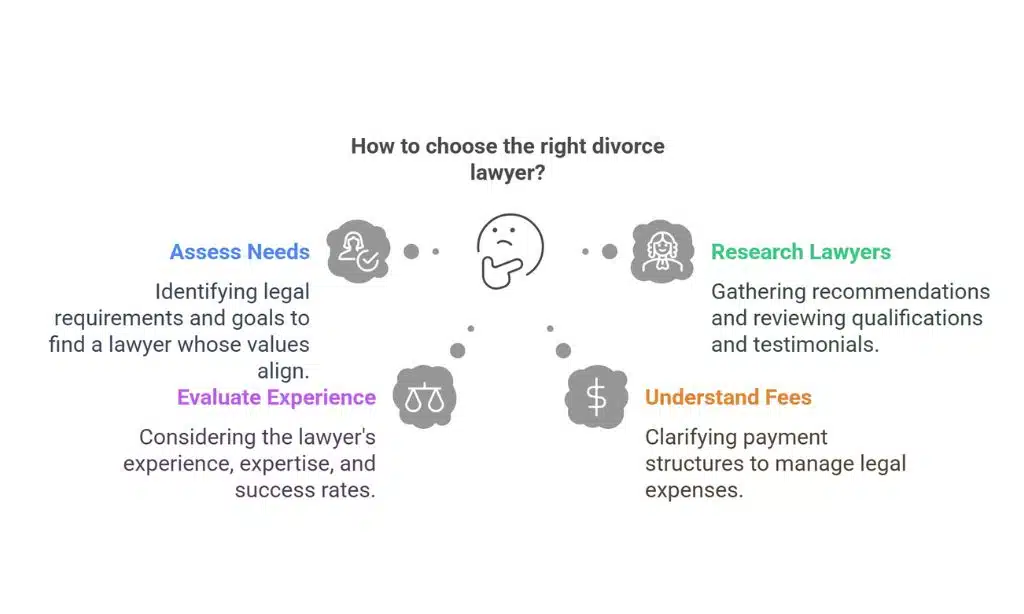Did you know that in the United States, 43% of marriages end in divorce? The divorce rate for second marriages and third marriages is 60% and 73%, respectively. Divorce can be one of the most difficult and emotionally draining experiences in a person’s life.
One of the most important decisions you’ll make during divorce is choosing a lawyer. Whether it’s a child custody arrangement or property division, you need a lawyer who can understand your needs and represent you effectively.
Sumter, SC divorce lawyer Charles T. Brooks III states that lawyers can provide expert guidance and support throughout the entire process. They can assist you with filing the initial petition, negotiating a settlement, or litigating in court.
This article will give you some of the characteristics you need to look out for when choosing a divorce lawyer who fits the circumstances of your case.
Assessing Your Needs and Goals
Prioritize identifying your legal requirements and goals. Your legal needs will help you make informed choices when selecting a divorce lawyer.
Are you dealing with custody arrangements, asset distribution, or alimony? Having a hierarchy of needs will help you in finding a lawyer whose values are similar to yours.
Another integral aspect when finding a lawyer is your budget. The fees for lawyers differ and are influenced by several factors.
Decide whether you want an attorney with a collaborative style or an aggressive-type attorney. Consider what kind of communications you would expect to have with your lawyer. Do you prefer to be constantly updated, or do you prefer to communicate less frequently?
Researching Potential Lawyers
The next step after determining your needs and objectives is to conduct research on prospective lawyers.
Ask friends, relatives, or colleagues about recommendations or referrals for situations similar or even identical to yours.
Local bar associations are another resource for finding qualified attorneys in your area. Read up on the attorneys’ websites, which contain any articles or blogs they have published. Examine their practice areas and read client testimonials.
Compare their profile and client dealings on social media. Shortlist candidates with whom you feel comfortable based on their distance, specialty, and communication style. The results of your selection will guide your next actions.
Evaluating Experience and Expertise
A divorce lawyer’s experience and expertise heavily influence the outcome of your case.
Knowing how long a person has been practicing family law and whether they specialize in divorce cases is important. Find a lawyer who has been in similar cases involving child custody, asset division, or spousal support.
Inquire about their success rates, negotiation skills, and courtroom techniques. The lawyer should have a clear grasp of local laws and court systems to effectively represent their clients.
To assess a lawyer’s reputation in the legal industry, it is advisable to request references or testimonials. A thorough evaluation will allow you to select an attorney who you think will be able to properly advocate for your interests.
Understanding Fees and Payment Structures
Understanding the payment structure and fees for a divorce attorney will help you manage your legal expenses. Most attorneys charge on an hourly basis, while some may have a fixed rate for specific services. Always ask about their billing methods early on to avoid financial surprises.
Divorce lawyers commonly ask for retainer fees. Retainers are usually an advanced paid amount that covers parts of the attorney’s service. Ask if there are additional costs for court fees or filing costs.
Have all your financial agreements in writing and draft a contract. Read the contract carefully and see to it that you understand all the terms before signing it. Choose a lawyer whose services fit your budget.
Scheduling Consultations and Making Your Decision
Before you schedule consultations with your prospective divorce attorneys, you need to establish an agenda for the meeting.
For example, you may inquire about their experience and strategy when approaching cases like yours. Use the meeting to observe a lawyer’s communication skills and identify who shows genuine interest in your case.
Keep in mind their costs, availability, and your comfort level. Trust your instinct and be confident with your lawyer’s skills.
After a few interviews, sit down and weigh all the pros and cons. Choose a lawyer who understands your legal needs and shares your outlook on divorce.







































